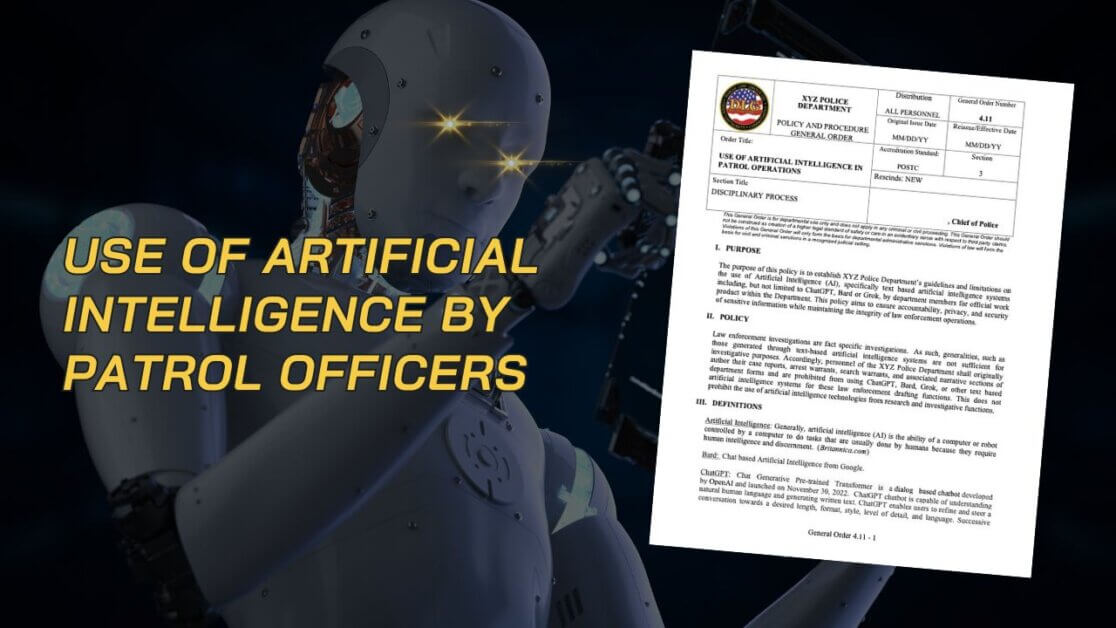Officers in our case today, United States v. Cole, had suspicions of drug activity and used what could potentially be seen as stalling tactics to ensure that a canine could arrive on the scene. According to the 2015 SCOTUS case, Rodriquez v. US, a seizure justified only by a police-observed traffic violation “becomes unlawful if it is prolonged beyond the time reasonably required to complete the mission” of issuing a ticket for the violation. This means that you have to let someone go after you complete writing the ticket. Let’s review United States v. Cole, 21 F.4th 421 (7th Cir. 2021) and explore how it played out for our officers involved.
Facts
Illinois State Police Trooper Clayton Chapman stopped a vehicle driven by Janhoi Cole for following too closely to another vehicle, in violation of Illinois law. Cole produced his Arizona driver’s license and a California registration document for the vehicle. When asked about the documents issued by two different states, Cole offered, “I’m a chef. I spend most of my time between Los Angeles and Maryland and New York at work. But I genuinely had a job in Arizona. And I keep this driver’s license because of the expiration date.”
Approximately four minutes into the stop, Trooper Clayton began to ask Cole about his travel plans. Cole told the trooper that he was going to Maryland because he was a personal chef and that was where his boss lived. When asked where his trip began, Cole did not answer the question initially, but said that he had met up with some family and friends in Colorado. Cole eventually told Trooper Chapman that his trip began in Maryland and that was where he was going. When Trooper Chapman asked Cole where he lived, Cole said that he spent most of his time in Los Angeles and that he was planning to move to Florida. When Trooper Chapman asked him why he did not fly, Cole told him that he had a car and that he travels with pots sometimes because he was a chef. Trooper Chapman thought that Cole’s travel details sounded vague and made up. In addition, Cole appeared extremely nervous during the stop. Among other physical symptoms, Cole was breathing heavily, and his neck was sweaty.
Less than nine minutes into the stop, Trooper Chapman told Cole that he was going to issue him a warning. He also explained that they would have to relocate to a nearby gas station for safety reasons. Cole returned to his own car, and they drove separately to the gas station. At the gas station, Trooper Chapman called for a K-9 unit. While waiting, Trooper Chapman continued questioning Cole about his travel plans. He regarded Cole’s answers as increasingly suspicious. He also learned from dispatch that Cole had been arrested three times on drug trafficking charges. About 45 minutes after the stop began, the K-9 unit arrived, and a drug sniffing dog alerted on Cole’s car. Officers searched the car and found large quantities of methamphetamine and heroin.
The government charged Cole with possession with intent to distribute 500 grams or more of methamphetamine and heroin. Cole filed a motion to suppress the drugs found in his car and his statements during the stop. Cole argued that the trooper unlawfully initiated the stop and then unreasonably prolonged it without reasonable suspicion of criminal activity. The district court denied Cole’s motion. Cole appealed.
Seventh Court Opinion
On appeal, a three-judge panel of the Seventh Circuit Court of Appeals reversed the district court’s denial of Cole’s motion to suppress. Subsequently, most of the judges of the Seventh Circuit Court of Appeals vacated the panel’s opinion and voted to grant a rehearing in front of the entire Seventh Circuit Court of Appeals versus a partial showing of judges.
First, Cole argued that the district court failed to consider the speed of other cars, traffic, and road conditions when it held that Trooper Chapman lawfully stopped him for following too closely behind another vehicle. The court noted that it was not relevant whether Cole violated the statute but whether the trooper reasonably believed that he saw Cole commit a traffic violation. At the suppression hearing, Trooper Chapman testified that Cole was less than two car lengths behind the vehicle in front of him when he decided to stop him. The court added that the magistrate judge credited Trooper Chapman’s testimony and made an express finding of fact that Cole was following too closely behind the other vehicle. Cole did not challenge this finding on appeal.
Next, Cole argued that Trooper Chapman unlawfully prolonged the duration of the traffic stop by inquiring about Cole’s travel plans. Cole cited Rodriquez when making his argument. However, because it was not at issue in Rodriguez, the Court did not decide if asking a driver travel-plan-related questions were among the ordinary inquiries of a traffic stop.
Although Rodriguez did not address whether travel-plan questions were permissible during a traffic stop, the Court provided a framework for answering that question. Specifically, the Court found that lower courts faced with this issue should ask, “whether, in the totality of circumstances, reasonable travel-plan questions, like the other ordinary inquiries of a stop, are justified by the traffic violation itself or by the ‘related’ concerns of ‘[h]ighway and officer safety.’”
Applying the Rodriguez framework in this case, the court held that travel-plan questions are routine inquires that reasonably relate to the underlying traffic violation and roadway safety; therefore, such questions ordinarily fall within “the mission of a traffic stop.” First, the court found that travel-plan questions provide important context for the violation at hand. For example, if “a driver was speeding in order to get his pregnant wife to the hospital”, then perhaps this “extenuating circumstance” might persuade the officer to issue a warning or simply release the driver.” Also, a driver’s travel plans may affect an officer’s assessment of roadway safety concerns beyond the immediate violation. For example, an officer investigating a broken taillight has a legitimate interest in knowing whether the driver is two miles from home or halfway through a cross-country trip. The court added that every circuit that has faced this issue of whether travel-plan questions ordinarily fall within the mission of a traffic stop since Rodriguez was decided has reached the same conclusion (1st, 3rd, 5th, 8th, and 11th Circuits). Finally, the court cautioned that an officer’s travel-plan questions, like the officer’s other actions during the stop, must remain reasonable based on the totality of the circumstances surrounding the stop.
Applying these principles here, the court held that Trooper Chapman’s travel-plan questions during the initial roadside detention fell within the mission of the traffic stop and did not unlawfully prolong the traffic stop.
Trooper Chapman questioned Cole about the basic details of his travel, which were relevant to the traffic violation and roadway safety. It was only after Cole provided evasive, confusing, inconsistent, and improbable answers to some of these questions that Trooper Chapman asked follow-up questions. Under these circumstances, the court held that Trooper Chapman’s travel-plan questions were reasonable, rejecting Cole’s argument that the trooper was “conducting a fishing expedition” for information that might establish reasonable suspicion to prolong the stop.
Next, the court did not address whether Trooper Chapman’s additional questions at the gas station stayed within the mission of the stop. Instead, the court concluded that less than nine minutes into the stop, Trooper Chapman developed reasonable suspicion that Cole was involved in criminal activity, which occurred before they drove to the gas station. As a result, the Court held that Trooper Chapman had a lawful basis to prolong the duration of the stop to conduct a dog-sniff at the gas station.
Takeaways
So, plot twist – this stop was not prolonged, and time has nothing to do with the framework in Rodriquez. What the court really examines is the natural progression of probable cause and your investigative police work. As the Court said Trooper Chapman established reasonable suspicion nine minutes into the stop. Much like a good interview, sometimes time is the enemy for your suspect. Cole talked himself right into his ultimate arrest and he showed physical signs of stress throughout the conversation. A major addition to our takeaways from Rodriquez includes that travel-plan questions are routine inquires that reasonably relate to the underlying traffic violation and roadway safety; therefore, such questions ordinarily fall within “the mission of a traffic stop.” As the Seventh Circuit noted, this also rings true in cases that have come up in the 1st, 3rd, 5th, 8th, and 11th Circuits.



